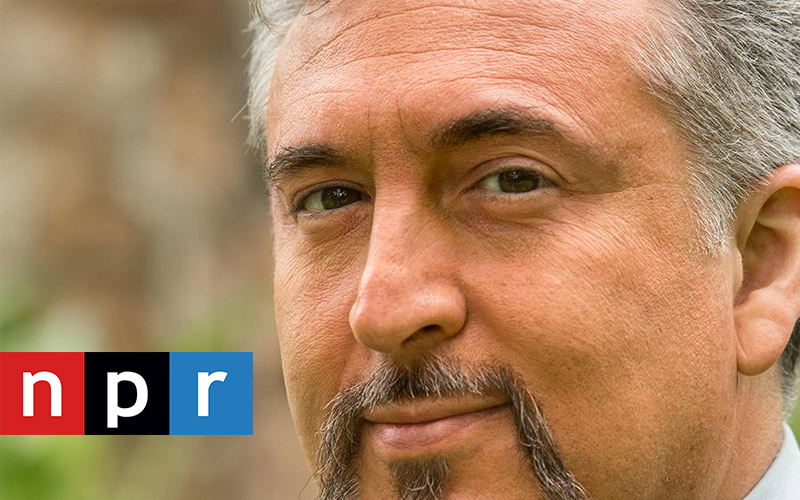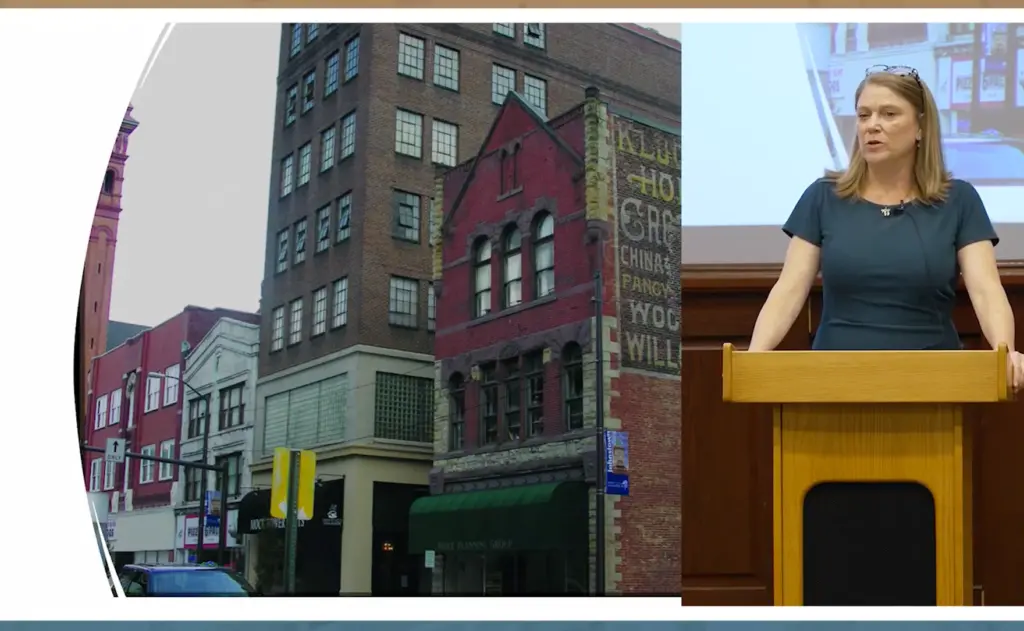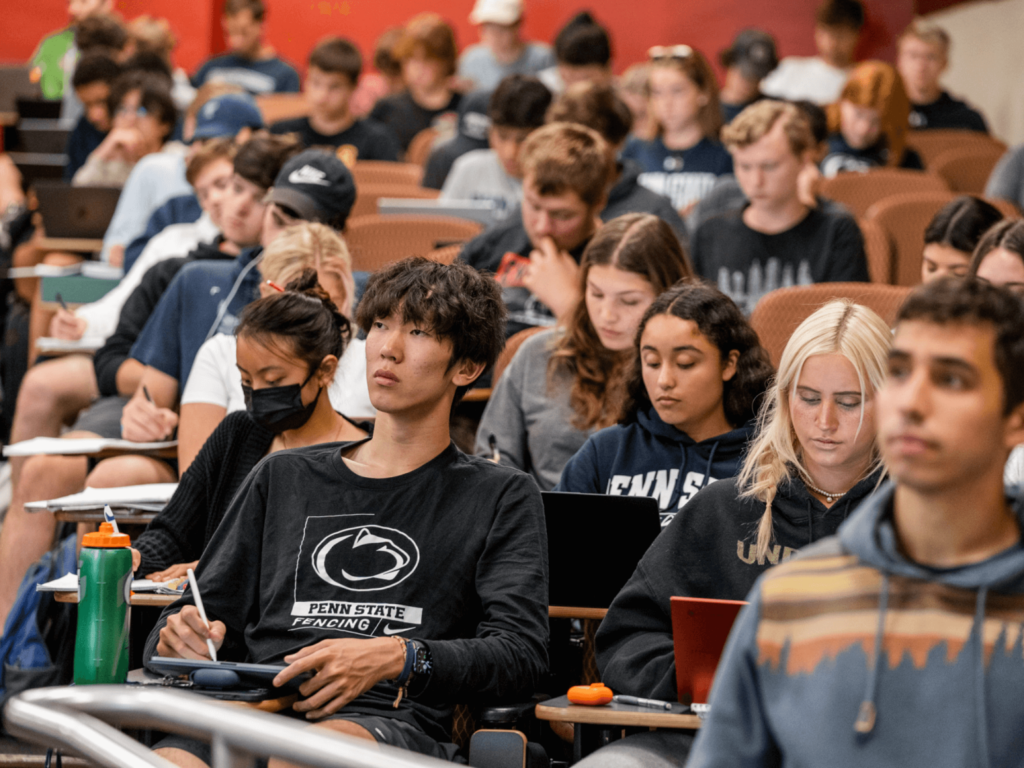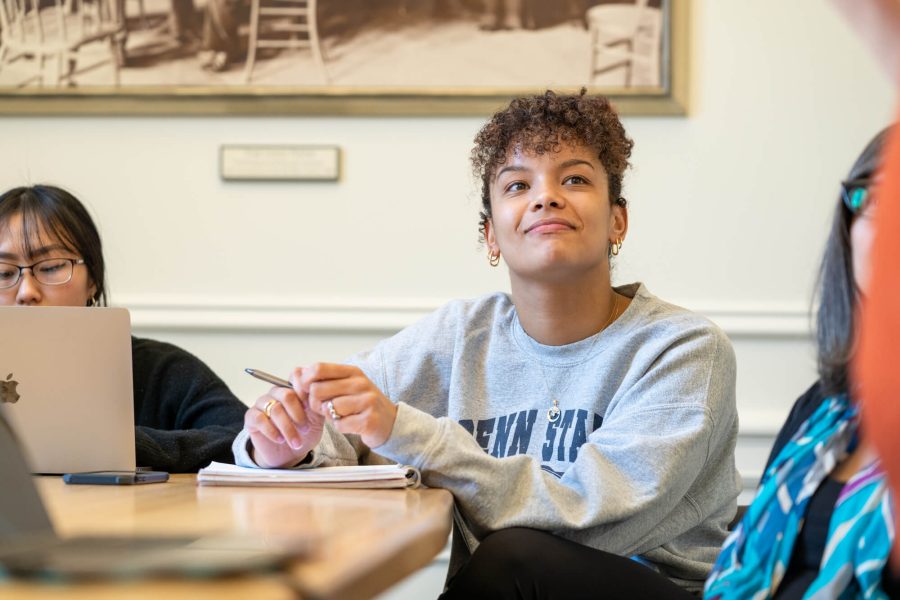
Immigration is the focus of the current offering in the College of the Liberal Arts’ “Moments of Change” initiative—an undertaking that brings students, faculty, staff, and alumni together to explore what it means to live through historic and contemporary times of change. Through spring 2025, “Moments of Change: Immigration, Identity, and Citizenship” will examine mass migration and highlight the ongoing work of students, faculty, staff, and alumni in that regard.
The new theme marks the 100th anniversary of the 1924 Johnson-Reed Act, a restrictive immigration law. The goal of the theme is to explore the parallels and differences between “then” (100 years ago) and “now”—both in the United States and around the world—exploring how the immigration experience and our responses to immigration have changed over the last century.
Between 1880–1920, 20 million Southern and Eastern Europeans migrated to the United States to what was then a protestant society populated by people of northwestern European and African descent. But this immigration flow was abruptly halted by the passage of the Johnson-Reed Act. With the explicit goal of “setting back the clock,” this law severely restricted the number of immigrants from Southern and Eastern Europe and completely banned immigration from Asia. A century later, the country is once again grappling with mass migration, this time from Latin America and Asia, and the rapidly growing racial/ethnic heterogeneity and fractionalization that has accompanied it.
Student Leaders
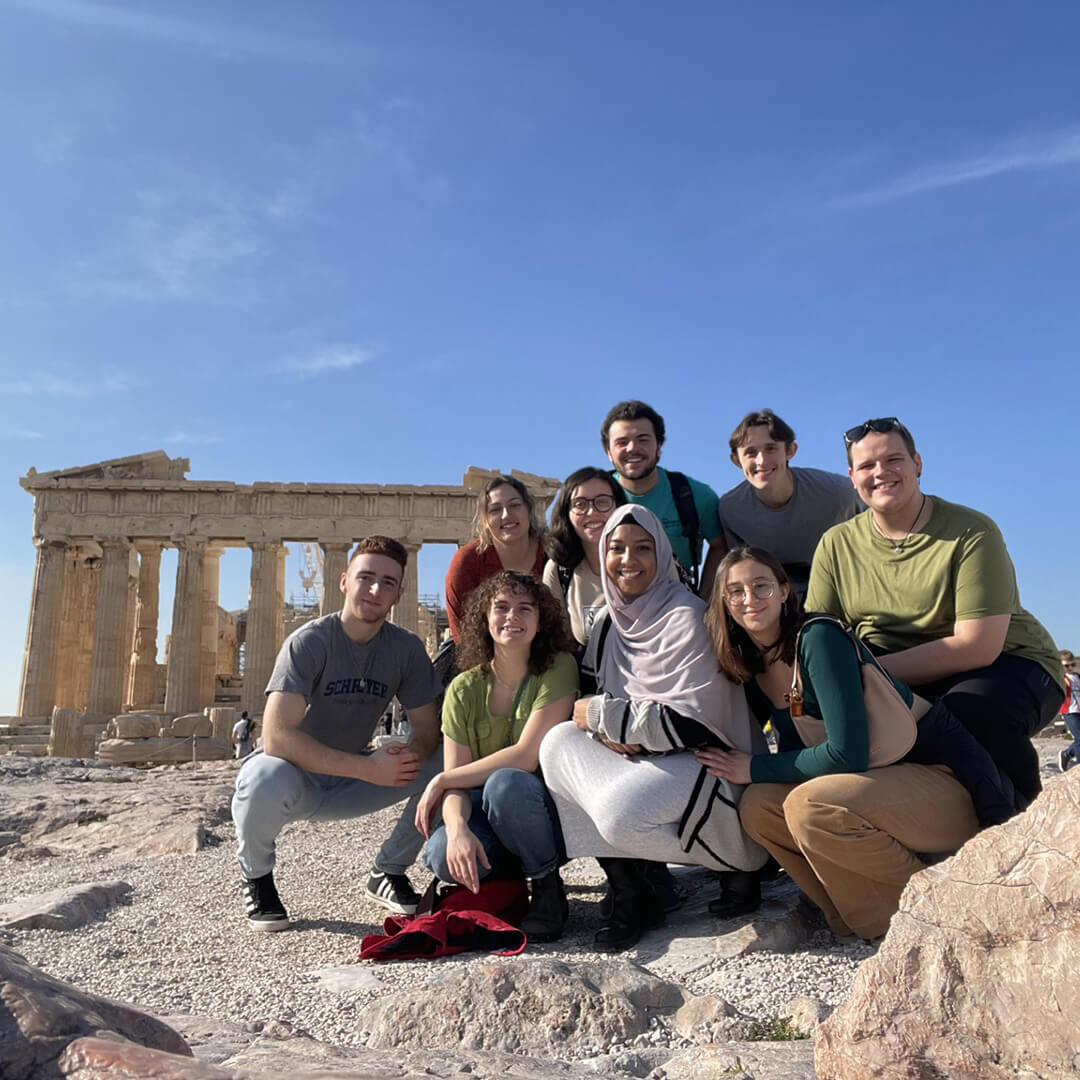
Emmanuel Kraft is the founder and president of the Legal Empowerment Brigade within Penn State Global Brigades. The second-year student is a Paterno Fellow and Schreyer Scholar majoring in Political Science and Communication Arts and Sciences.
In May 2023, he led a pilot program to Athens, Greece, to shadow lawyers to understand how refugee and immigration cases are handled. They also worked with the Greek Council for Refugees, contributing to legal efforts to aid refugees in their journeys to immigration for little to no cost. The work in Athens culminated in creating an educational workshop for unaccompanied minors who were trying to immigrate across the border by themselves.
Emmanuel said the Legal Empowerment Brigade is looking to build and plan additional ways to help the community during their week-long volunteer programs abroad during summer 2024.
- Brazilian Student Association
- Colombian Graduate Students Community at Penn State
- Ecuadorian Student Association
- Egyptian Student Association
- International and Multicultural Association of Schreyer Scholars
- International Student Council
- Latin American Graduate Student Association
- Minorities in the College of the Liberal Arts
- HIST 158 History of American Immigration
- HIST 525 Imperial Borderlands in Modern Europe
- HIST 542 American Borderlands
- IT 131 Introduction to Italian American Culture
- IT 320 Global Italy
- LTNST 100 Introduction to Latina/o Studies
- LTNST 226 Latina and Latino Border Theories
- LTNST 326 Reading the BorderLands: Geography and Identity Along the U.S.-Mexico Border
- SOC 445 Sociology of Immigration
- SOC 525 Immigrant Integration and Inequality
- SPAN 315N Spanish and Spanish Speakers in the U.S.
- SPAN 355 Topics in the Cultures of Latin American: Judaism and Jewish Experiences in Latin America through Literature, Film, and Photography
- SPAN 479 U.S. Latina/o Culture
- SPAN/LTNST 571 Latina/o Studies: Foundations in the Field and Its Teaching
- SPAN 597-002 Contemporary Latin American Fiction and Film: The Rural and the Wild in an Urban Age
Alumni Leaders
Jason De León: “The immigration stories that aren't told" on Democracy Works Podcast”
Penn State alumnus and anthropologist Jason De León is a professor of anthropology and Chicana/o studies and director of the Cotsen Institute of Archaeology at the University of California, Los Angeles. He is also executive director of the Undocumented Migration Project, raising awareness about migration issues globally while also assisting families of missing migrants in reuniting with their loved ones. Jason embedded with a group of smugglers moving migrants across Mexico over the course of seven years. The result is the book “Soldiers and Kings: Survival and Hope in the World of Human Smuggling,” which he discusses on this episode.
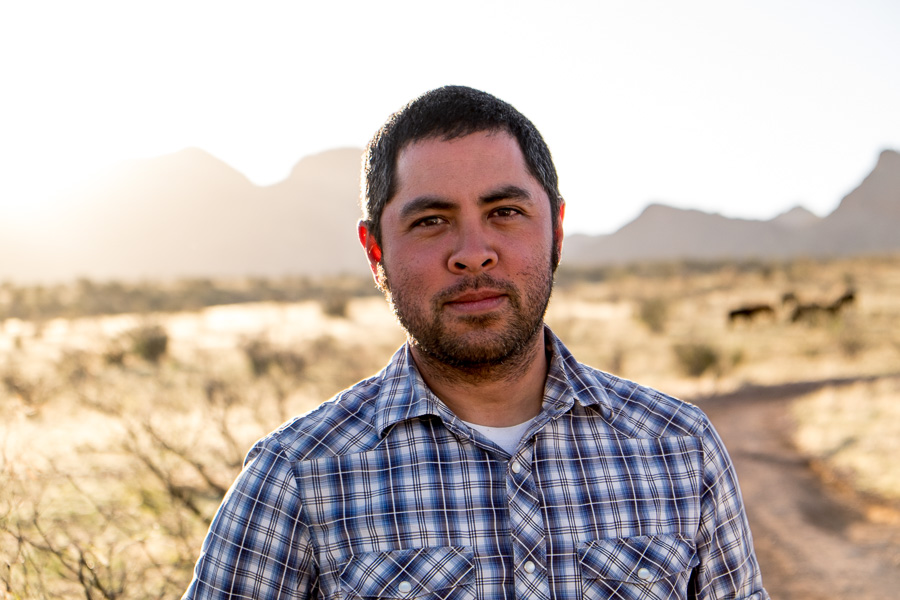
- What are the push and pull factors of immigration for Dr. De Leon’s research subjects?
- Dr. De Leon says, “People don’t come to these decisions easily.” What are his subjects risking when making this journey?
- What does America represent to Dr. De Leon’s subjects?
- What factors in the US continue to draw immigrants over the border despite increased levels of border enforcement?
- What role to families play in the migration journey, and how are family relationships impacted by it?
- Is immigration a problem for the United States? If so, is it more of a political problem, or a social/economic problem?
- Dr. De Leon speaks about developing empathy or a shared understanding of the HUMAN experience when following migrants’ journeys – as opposed to othering or dehumanizing them. How does this shift the perspective or approach of doing Anthropology?
- Dr. De Leon also attempts to understand those people who are gang members or smugglers (coyotes) – why? What does he find out about their backgrounds?
- What about objectivity in research? Is his subjectivity a disadvantage or an advantage when doing fieldwork?
- How might his approach potentially shift the perspective of his readers or audience?
- What responsibility does Dr. De Leon have to his research subjects?
- In what ways that does Dr. De Leon say that (undocumented) immigration benefits the U.S. economy?
- How is the smuggling industry a response to U.S. immigration policy?
- From what he observes from the field, what are Dr. De Leon’s criticisms of immigration policy?
Upcoming Theme Events
Past Theme Events
Author Meets Critics Panel
Monday, September 9, 2024
Nicole Kreisberg, assistant professor of public policy, presented her newest book on Latino immigrants’ climb to the top of the labor market.
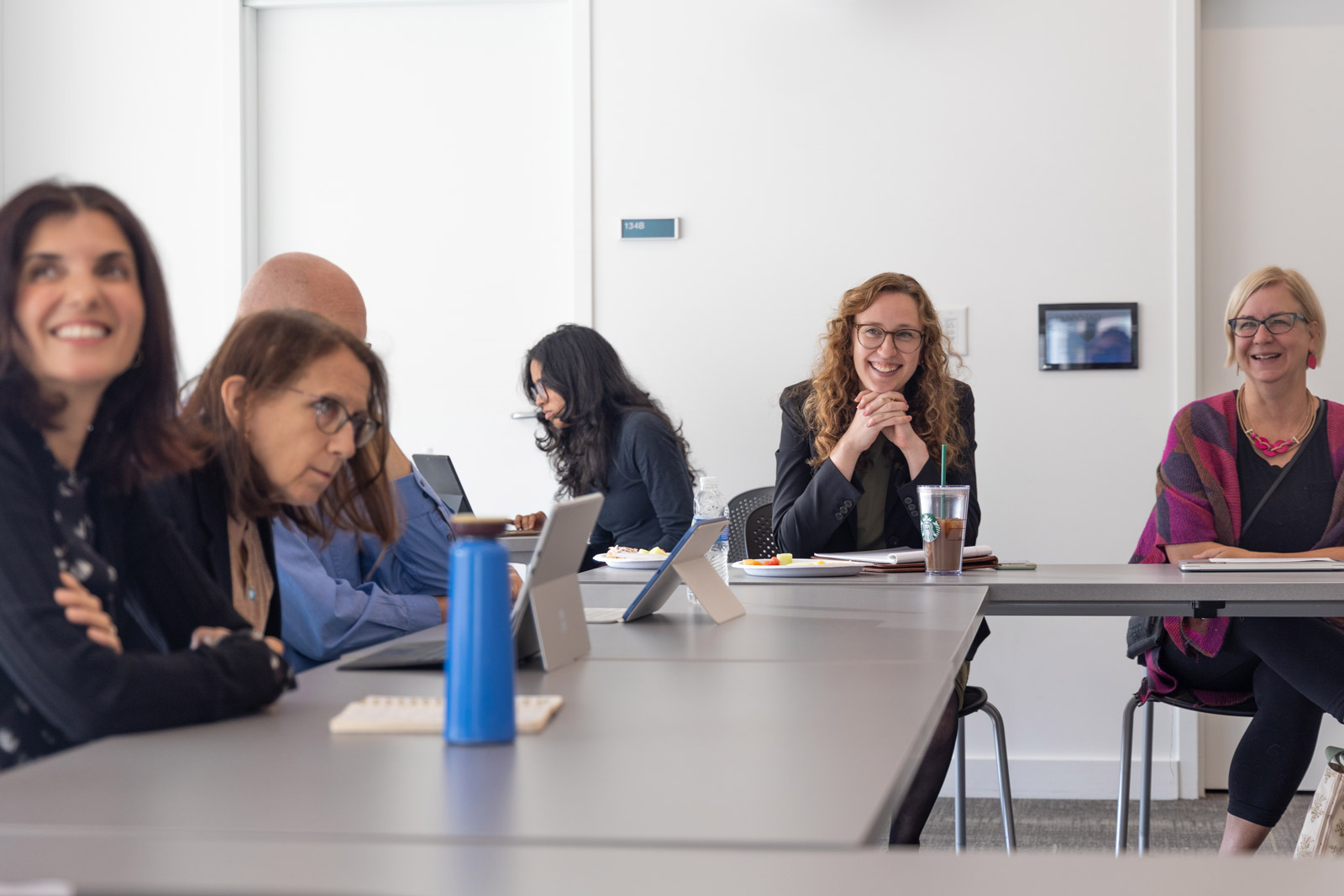
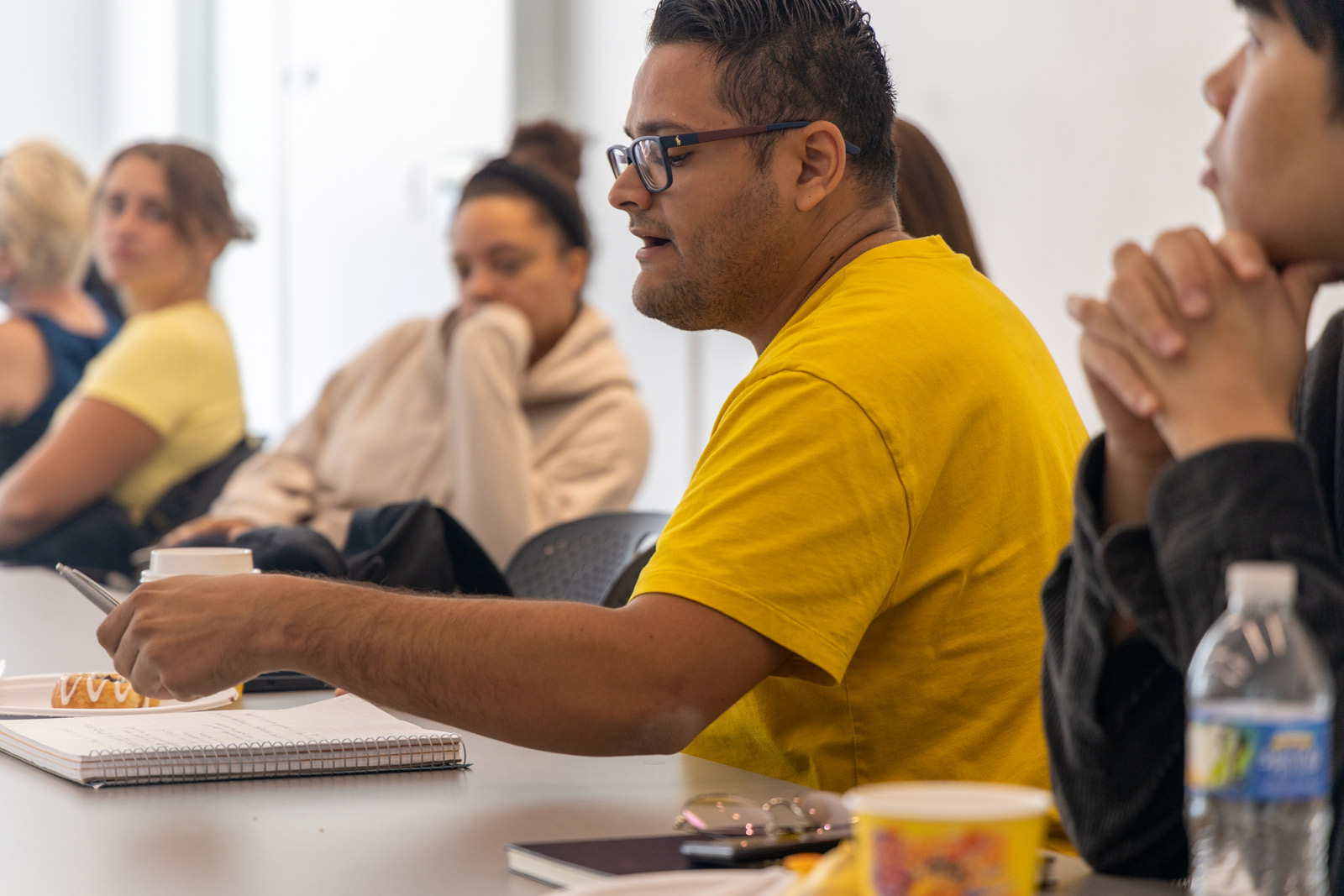
“Uncovering the Stories at the U.S.–Mexico Border”
Tuesday, September 17, 2024
Penn State alumnus and anthropologist Jason De León talked about his work studying the migration of clandestine migrants crossing the U.S.–Mexico border.
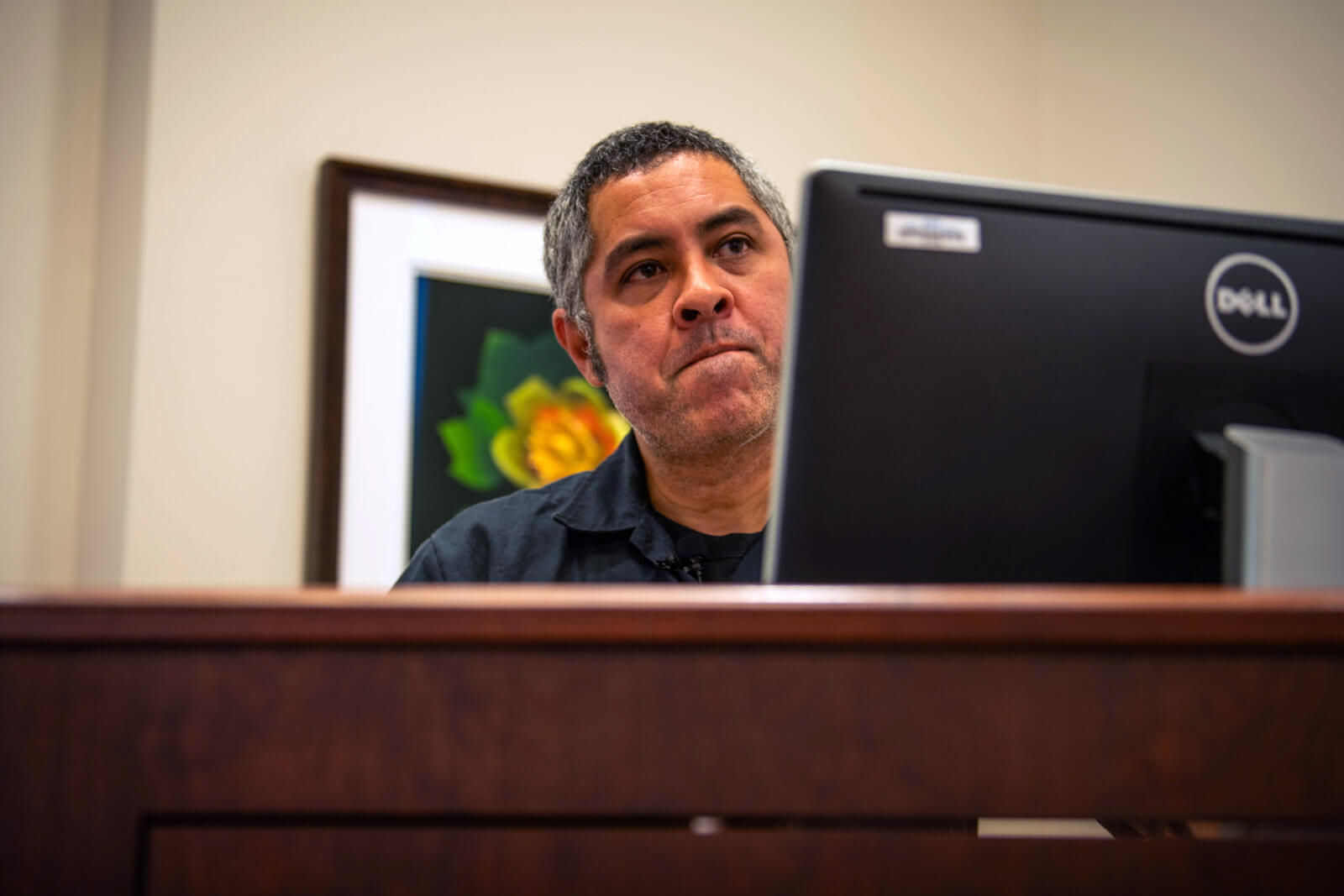
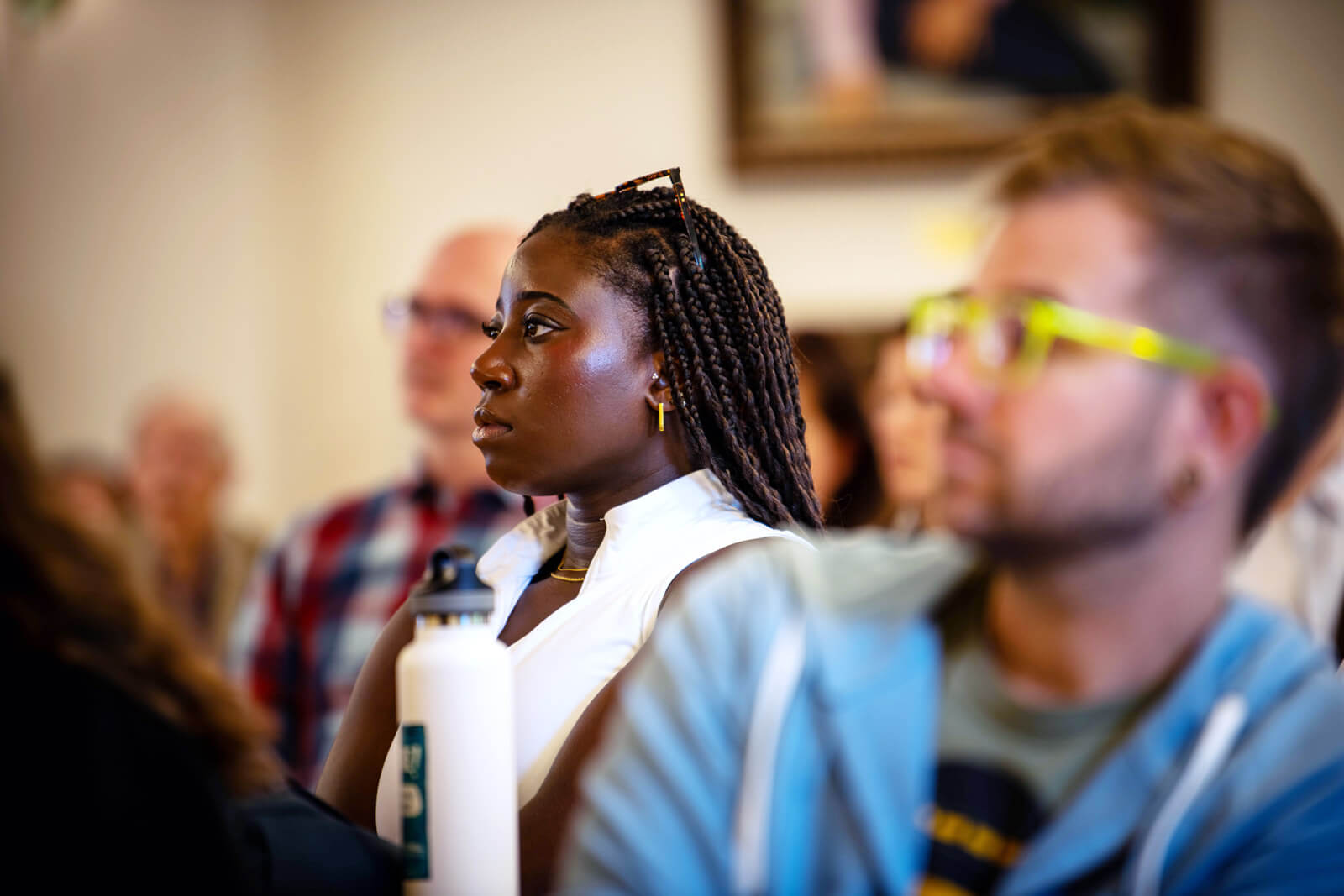
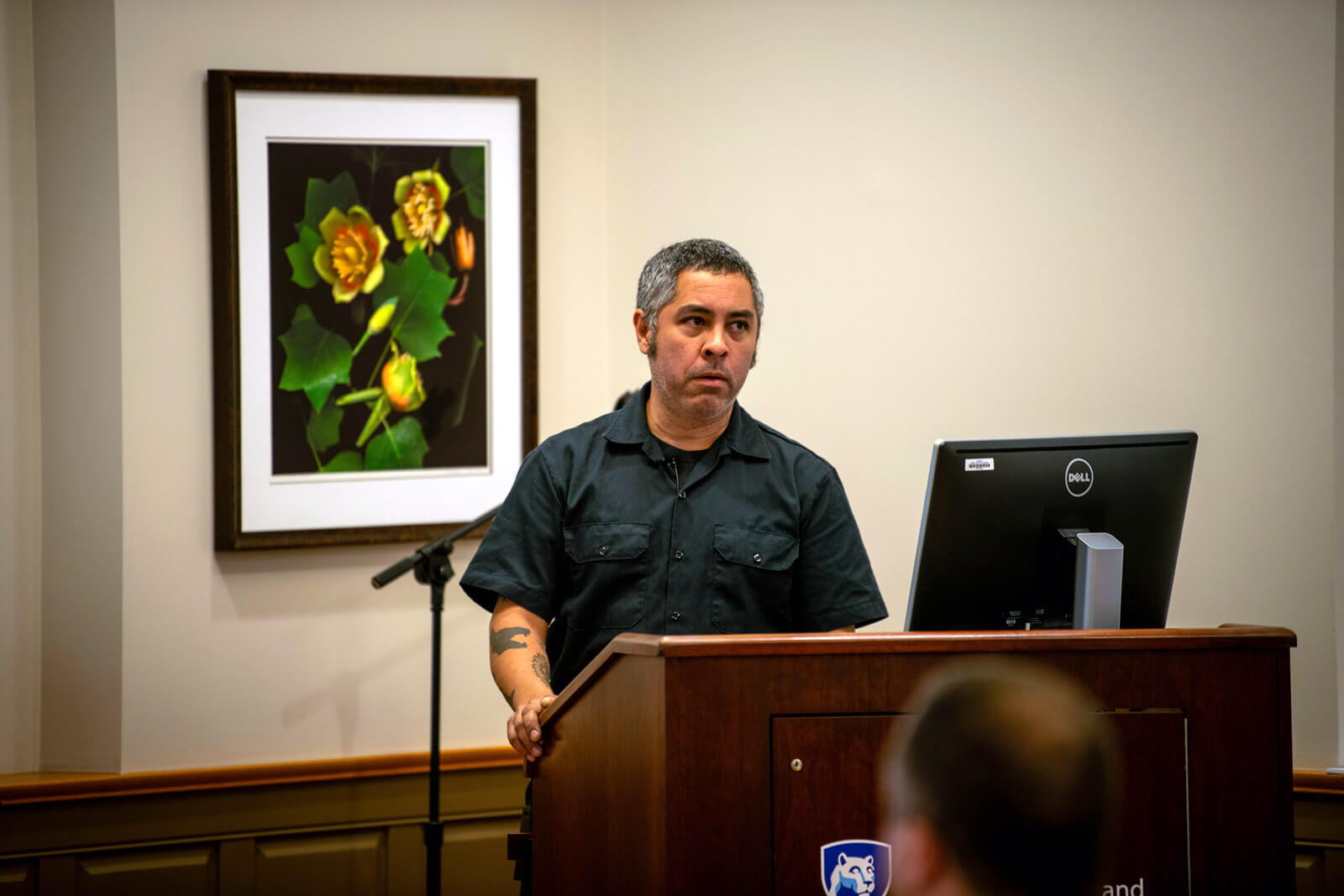
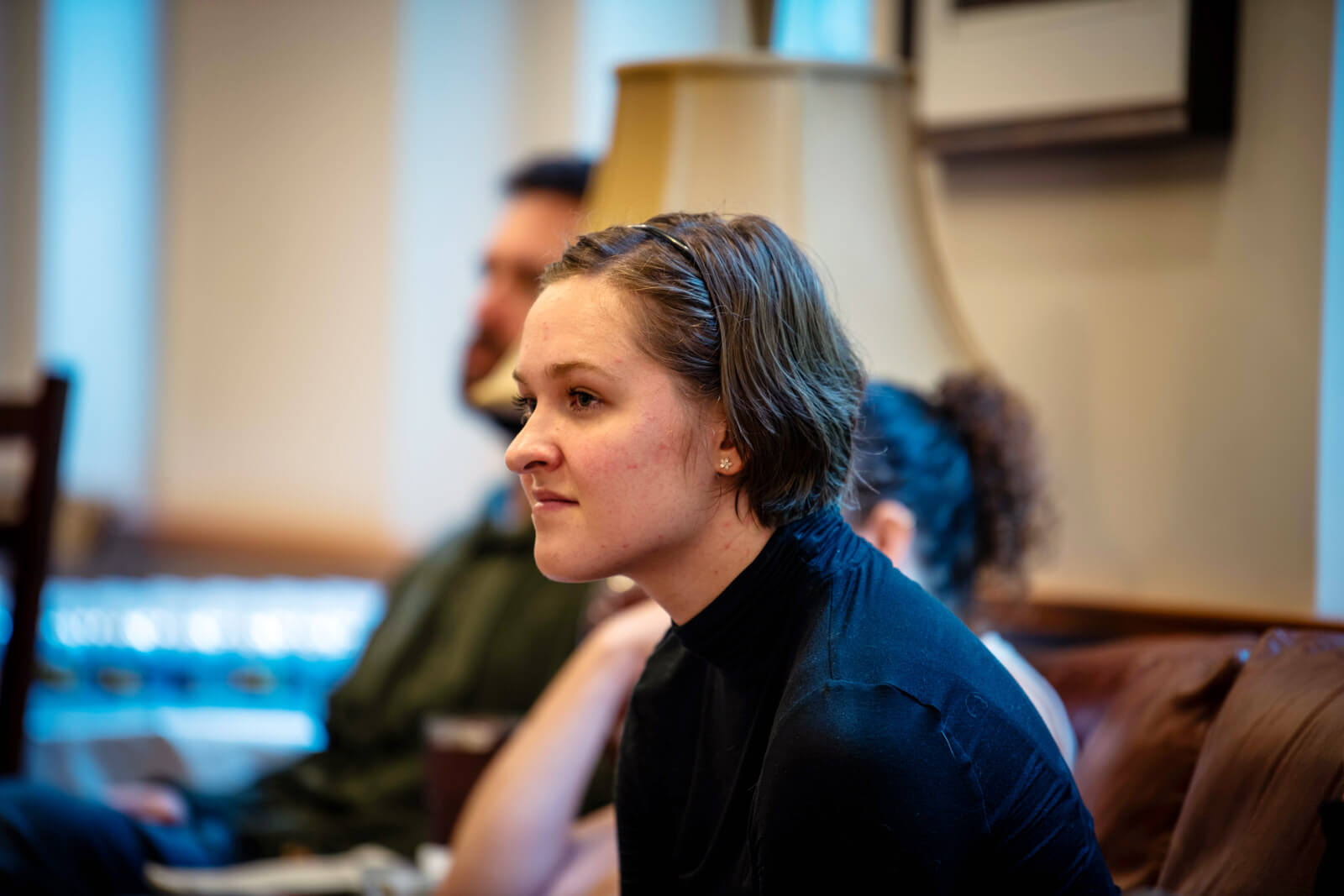
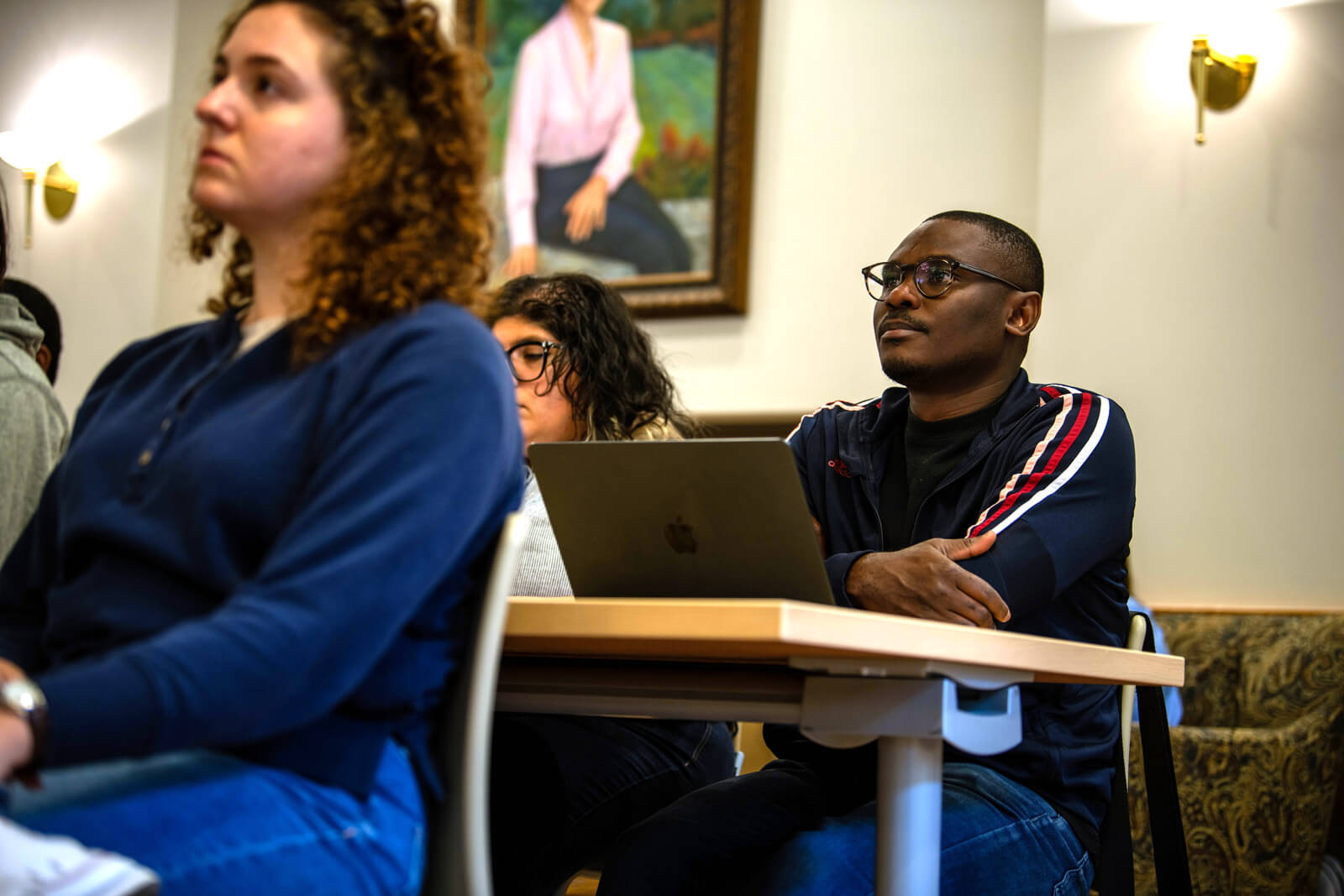
Event Recordings
Johnstown, PA, and the Invention of America’s "Immigration Problem"
Educator and author Katherine Benton-Cohen discusses Pennsylvania’s place in American immigration history, revealing Johnstown’s pivotal role in the largest and most important study of the nation’s immigrants—one that shaped more than four decades of U.S. policy.
